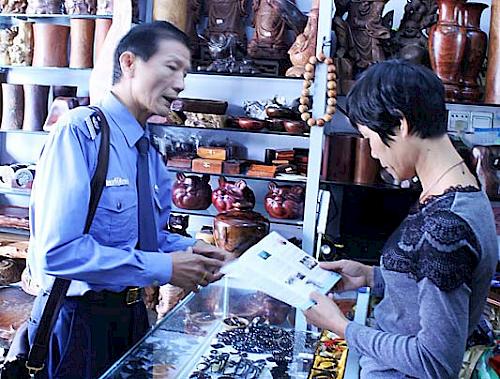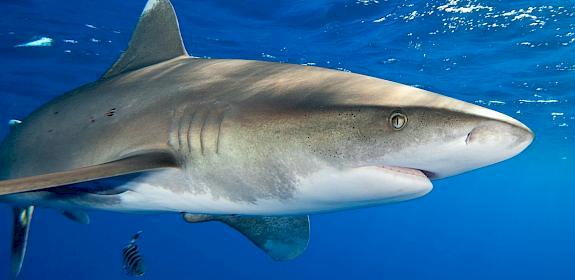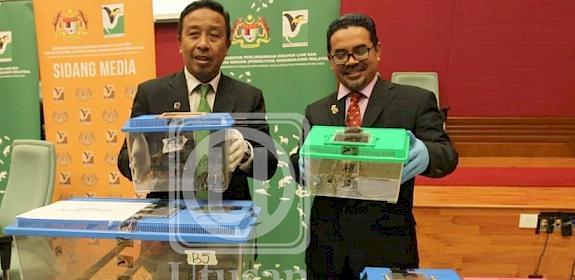Chinese enforcement officers learn to combat illegal marine turtle trade
Beihai City, Guangxi Province, China, 29th November 2012—TRAFFIC, in collaboration with the provincial CITES Management Authority, supported the training of enforcement officers from the Fishery Department, Industry and Commerce Department, and Customs of Guangxi Province on illegal trade in marine turtles.

The training aimed to enhance enforcement officers’ capacity to detect and combat illegal trade in marine species. It followed a similar workshop held last July for enforcement officers from Hainan Province.
Last month a TRAFFIC report, Market Forces – An Examination of Marine Turtle Trade in China and Japan, identified Hainan and Guangxi Provinces as hubs for marine turtle trade in China. The report details TRAFFIC surveys, which found many Hawksbill specimens and other turtle shell ornaments openly displayed for illegal sale in local crafts and gifts shops.
Delegates to the Guangxi workshop received expert training on CITES (Convention on International Trade in Endangered Species of Wild Fauna and Flora) and national regulations, current levels of illegal trade in marine species in Guangxi, effective means to detect smuggling in these species, and tuition on identification of commonly-traded marine species and their products.
“As a Party to CITES, China should strictly comply with rules of the Convention, in order to guarantee the sustainability of the world’s wildlife resources,” said Mr Wan Ziming, Director of the Enforcement & Training Division of China’s CITES Management Authority.
“China’s National Inter-Agency CITES Enforcement Coordination Group (NICE-CG) considers marine turtles, alongside animals like the tigers, rhinos, and elephants, as priority species for conservation action.”
“Through the joint efforts of NICE-CG, the illegal marine turtle trade will be strictly controlled,” added Mr Wan Ziming.
At the workshop, marine turtle identification sheets, posters and pamphlets were distributed to participants.
“TRAFFIC has closely monitored the illegal market availability of marine turtle products in China, and is working closely with relevant agencies to help stop this trade in terms of both supply and demand” said Ms Xu Ling, Senior Programme Officer for TRAFFIC in China.
“The illegal trade threatens the survival of marine turtle species and destabilizes the ecological balance of marine ecosystems in China and neighbouring countries of the Coral Triangle region,” she added.
Following the workshop, some enforcement officers undertook a joint undercover patrol in key markets in Beihai City to gain further insights and understanding of the nature of the illegal trade, as a basis for future enforcement actions. Other officers spoke openly about the illegal trade to market traders and distributed relevant communication materials.
Local traders welcomed the open approach and indicated they would follow the law and educate their customers not to purchase illegal goods.
TRAFFIC’s work on marine turtle trade in the region is part of a wider programme under WWF’s Coral Triangle Global Initiative to tackle illegal trade in marine turtles, linking China’s market demand to the illegal harvest and supply from the Coral Triangle countries of Indonesia, Malaysia, Papua New Guinea, and the Philippines. The integrated approach combines enhanced law enforcement efforts and demand reduction through intensive legal and conservation awareness-raising.
TRAFFIC thanks the WWF Coral Triangle Global Initiative for financial support towards reducing illegal trade in marine turtles in China.



